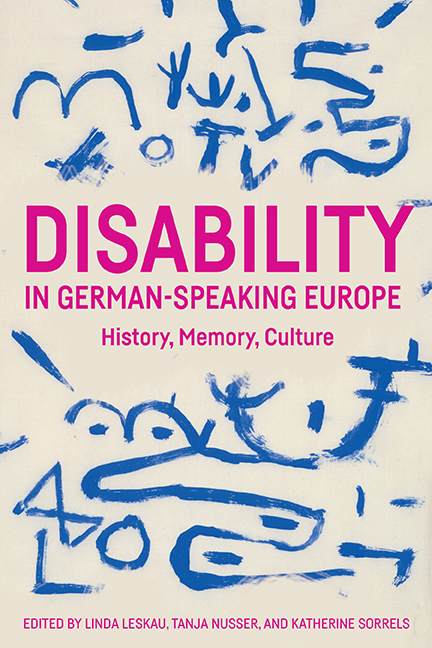4 - The Romance of the Institution: Educational Optimism and the Confinement of the “Feebleminded” in Modern Germany
Published online by Cambridge University Press: 16 July 2022
Summary
IN SEPTEMBER 1920, Heinrich E., a twenty-one-year-old inmate at an institution for “epileptics and idiots” in Rotenburg, wandered away from the facility without permission. He made his way to a nearby photo studio and stood for a portrait. He ordered twelve copies of the photo, telling the photographer that the institution would pay for it.
The photograph shows a handsome youth in a dark suit and tie—presumably borrowed from the portrait studio. Heinrich stands before a garden, his hand resting on a graceful white bench. He seems confident and relaxed, like a gentleman showing off his estate. Looking at the photo, one could not have guessed that Heinrich, the illegitimate son of a servant girl, had been an inmate in institutions for the intellectually disabled continuously since the age of five. His unauthorized excursion reads as a double act of rebellion: against the institutional regime that controlled every aspect of his life and against the identity that it thrust upon him, as a “feebleminded” person (Schwachsinniger) doomed to a diminished status in perpetuity. Today, in the age of the ubiquitous selfie, it is easy to imagine the sense of freedom Heinrich must have felt during this moment of self-invention. He was soon back at the institution, under the watchful eyes of doctors, teachers, and staff.
Heinrich entered the world of German institutional care in 1905 during a period of explosive growth in the confinement of persons with intellectual disabilities. A Prussian law of 1891 ordered provincial governments to cover the costs of institutionalization for feebleminded children from families without means. In the wake of this act, the inmate population ballooned, and the number of institutions across Germany doubled from forty-five to more than ninety. Other nations experienced a similar boom in confinement, but Germany's practice of segregating children with disabilities was extraordinary even by international standards. By 1904, 20,000 German children were in closed institutions for the feebleminded. The country with the next largest inmate population, the United States, had fewer than 15,000.
There seems to have been no debate about whether Heinrich belonged in an institution. When he was four, his legal guardian, a worker in his hometown of Uphusen, arranged for the district medical officer to examine him. The doctor's report was vague and impressionistic. It indicated that Heinrich had been delayed in walking and speaking, was chronically weak, and had an “idiotic look on his face.”
- Type
- Chapter
- Information
- Disability in German-Speaking EuropeHistory, Memory, Culture, pp. 89 - 109Publisher: Boydell & BrewerPrint publication year: 2022



